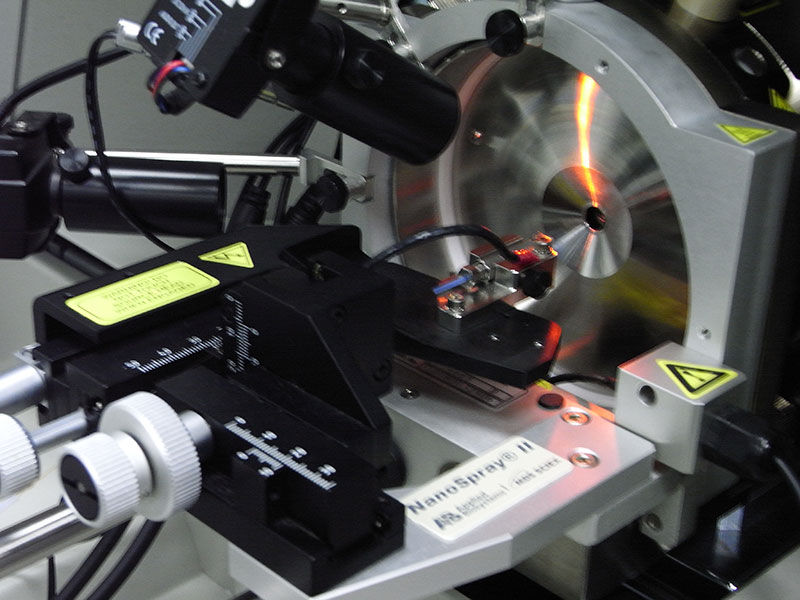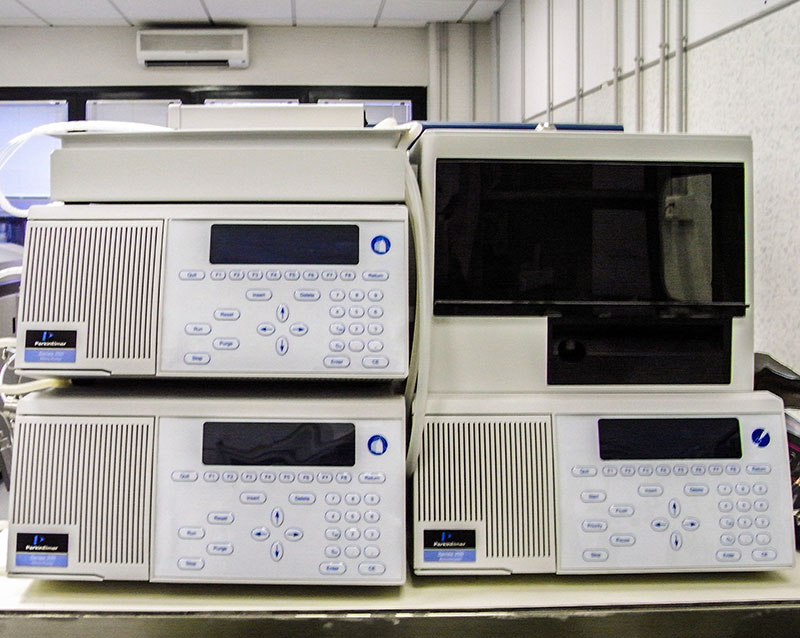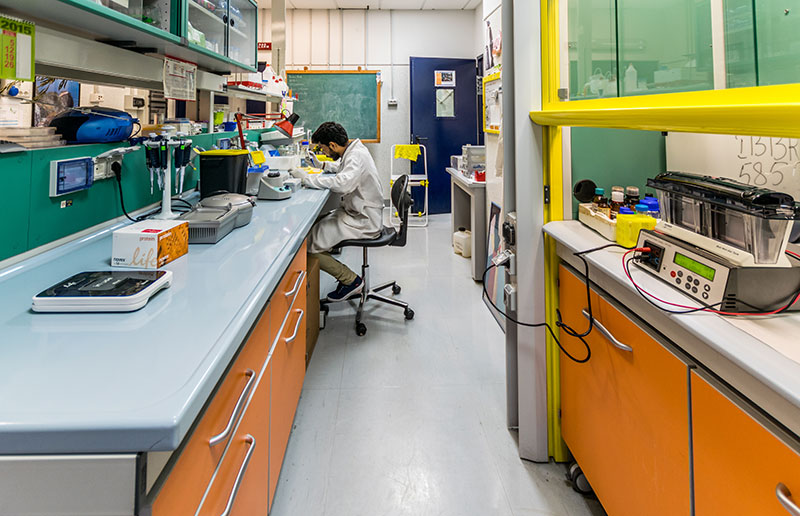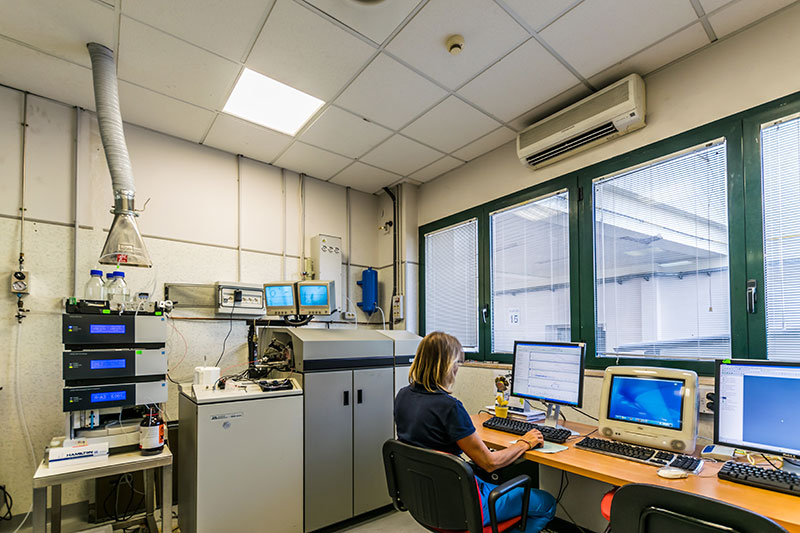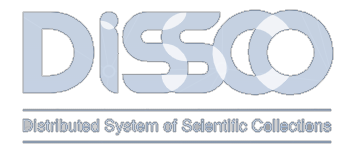Mass Spectrometry and Proteomics Lab - Naples
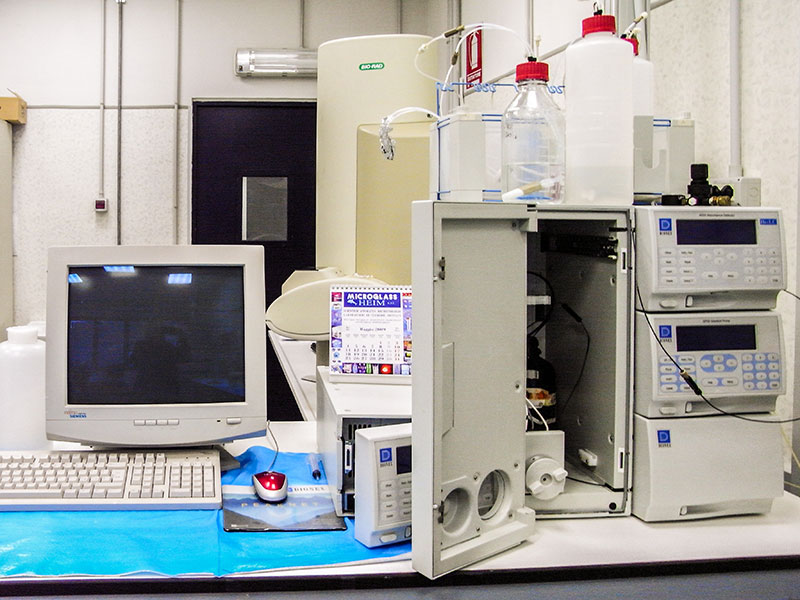
Dionex BioLC system
Description

Dionex BioLC system
The Mass Spectrometry and Proteomics laboratory at IBBR-Naples was set up in 2006 by financial investments of University consortium BioTecNet and CNR in order to meet the necessity to establish proteomics-based research at the institute. The goals of facility are three-fold:
- provide analytical measurements and supports to studies and projects requiring proteomics technology, data analysis and/or mass spectrometry-based analysis;
- develop new methodologies and analytical tools for functional proteomics;
- facilitate the acquisition of external research funds to promote interdisciplinary research and education.
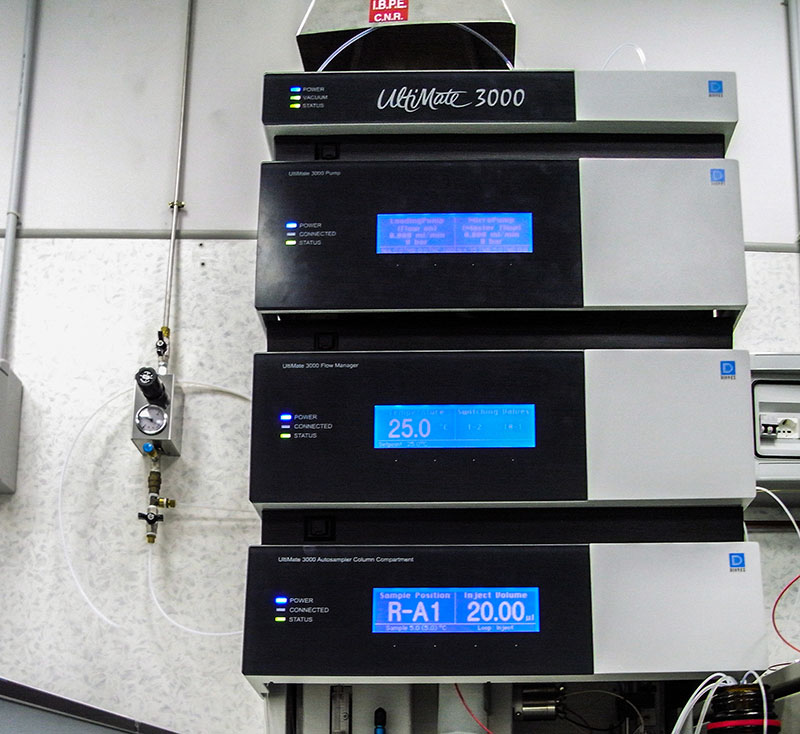
LC Packings Ultimate 3000 2D-nano-HPLC
Available instruments

LC Packings Ultimate 3000 2D-nano-HPLC
- QSTAR® Elite (Applied Biosystems): a hybrid quadrupole-time-of-flight (Q-TOF) tandem mass spectrometer (MS/MS). The instrument is equipped with a nano-electrospray ion source and on-line coupled to a two-dimensional (2D) nano-HPLC system (Ultimate 3000). The nano-2D-HPLC-ESI-MS system is equipped with an autosampler.
- HPLC systems
- Ultimate 3000 (LC Packings) 2D-nano-HPLC interfaced with QSTAR-Elite
Hewlett Packard, Series 1100 HPLC with UV detector - Perkin-Elmer, Series 200 with autosampler
- Dionex BioLC® system: high performance anion exchange HPAE chromatography with pulsed amperometry detection (PAD) for carbohydrate analysis.
- Ultimate 3000 (LC Packings) 2D-nano-HPLC interfaced with QSTAR-Elite
- ETTAN-DALT II (Amersham): 2D gel electrophoresis system
- Novex® NuPAGE® SDS-PAGE gel and Novex® NativePAGE™ gel systems
- iBlot® Dry Blot and iBind™ Western Blot systems
nano-ESI ion source
The Mass Spectrometry and Proteomics Lab provides the following:
Sample preparation
- Determination of protein concentration (micro BCA assay by NanoDrop analysis and Bradford assay)
- Desalification and purification of peptide or protein sample for MS scale analysis (like ZipTip)
- Depletion of high abundant proteins in biological fluids
- In-solution enzymatic protein digestion
- In-gel protein digestion
- Protein extraction from cell culture and biological fluids
PE Series 200 with autosampler
- Stable isotope labelling for quantitative proteomics using iTRAQ and SILAC
- Enrichment in phosphopeptides using TiO2 or ZrO2 micro and nano-particles
- Chromatographic- and gel-based purification and/or separation of proteins
Mass Spectrometry and Related Services
- In-gel and/or in-solution digestion-based identification of proteins - shotgun analysis
- Multidimensional protein identification technology (MuDPIT) by nano-HPLC-ESI-MS/MS
- Set-up of Information Dependent Acquisition (IDA) for the analysis of peptides
- 2D-nano-HPLC-ESI-MS/MS analysis (1st dimension by SCX and 2nd dimension by C18
- Phosphoproteomics: identification and quantitation of protein phosphorylation by phosphopeptide enrichment and shotgun proteomics
Gel-besed separation techniques
- Quantitative proteomics by iTRAQ and SILAC technologies
- ESI-MS or nano-ESI-MS by sample infusion
- ESI-MS/MS or nano-ESI-MS/MS by sample infusion
- HPLC-ESI-MS of intact proteins (RP-C4)
- Exact molecular mass determination - elemental composition (with expected error in 5ppm)
Data analysis
- Protein identification by automated database search (Mascot Server)
- Manual - Partial sequencing of peptides
QSTAR-Elite-nano-ESI-MSMS
- Elaboration of quantitative proteomics data
The access to the lab is easy and friendly: researchers contact lab staff, discuss experiment, fill up the sample analysis request form, submit the samples and in a few days have their results.
Personnel
Dr. Gabriella Pocsfalvi and Immacolata Fiume
(click on name to browse their personal pages)

